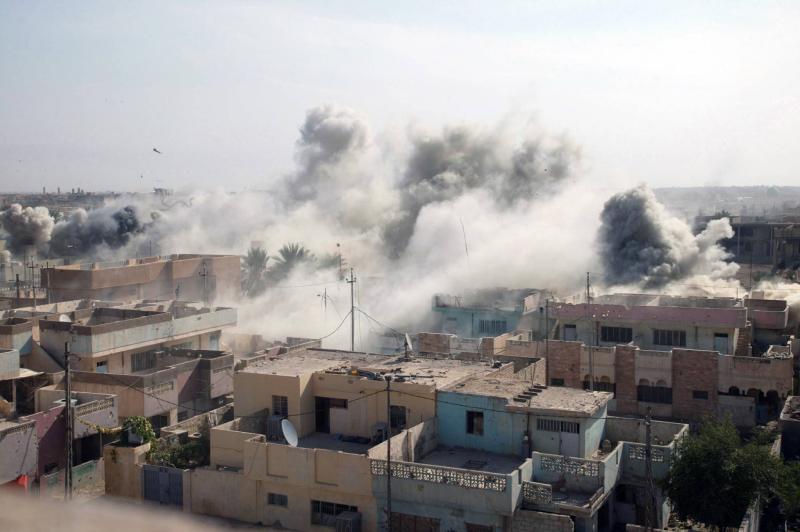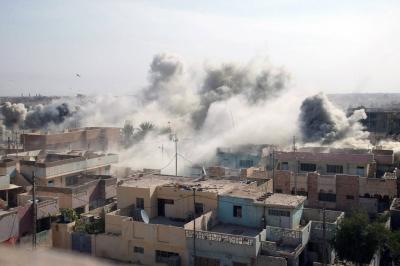Elena Zowheyd was relaxing at her home in Camp Pendleton, California, about to give birth to her first child on April 12, 2004. On the other side of the world, her husband Rob was dying. An American Marine Corps mortar shell flew overhead and nearly landed on him, inside a dusty courtyard of a school in Fallujah, Iraq, where he and other members of his unit were hiding and fighting off insurgents. However, when a Marine officer came to Elena's door, he did not say that her husband and two others were killed that day due to a terrible mistake. He told her that Rob was killed by enemy fire. The Marine Corps ultimately admitted it was friendly fire three years later under pressure from Congress, but Elena still has questions. She says, "It's all one big lie. Why did they keep it a secret in the first place?"
Earlier this year, NPR attempted to uncover the truth and revealed that the son of a prominent politician was involved in the mistake and that the entire matter was covered up. Now, Senator Mark Kelly, a Democrat from Arizona and a member of the Senate Armed Services Committee, is asking the Marine Corps for answers. Kelly, a veteran, has urged the Marines to explain why injured soldiers were not told the truth about the friendly fire incident in Iraq in 2004. He stated, sitting at his office on Capitol Hill, "Elena, the widow of Robert Zowheyd, is one of my constituents, and her son Robert, who was not even born when his father was killed, is in Tucson with his mother." Kelly said, "They deserve answers, and it’s important that they get them—not just them, but the individuals who were injured. Why were they not informed? Do you know why it took all this time? They should have been informed immediately. The Marines have regulations, and they are supposed to follow them."
Kelly mentioned that he recently met with the Marine Corps' second-in-command, General Christopher Mahoney, and asked him about the friendly fire that killed Rob Zowheyd, Brad Shuder, and a translator, wounding nearly a dozen others. Brad Shuder of the Marine Corps died after an explosion rocked a school in Fallujah in 2004. When NPR consulted the Marines for answers, they initially could not find any documentation of the friendly fire, leading NPR to file a lawsuit in federal court for a copy of the investigation. The Marines also provided conflicting accounts of how the friendly fire incident happened. One of the men still waiting is John Smith, a Marine who lost his leg and eye in the explosion. He is currently working on a master's degree in mental health counseling and is a hip-hop artist on the side, moving slowly with a stiff gait.
He said the explosion comes to mind every time he puts on his prosthetic leg. Smith remarked, "For ten or fifteen minutes in the morning, I go back to 2004 because I have to piece myself together every time. So it feels like I cannot fully move on." Under Pentagon regulations, a Marine should have met with Smith, explained the circumstances of the incident that injured him, and given him a copy of the investigation nearly twenty years ago. Instead, he learned it was friendly fire from an NPR report three years ago. Smith remains angry with the Marine Corps for failing to inform him of the truth, stating, "The only word I can say is disgusting. For example, you adopt words of honor, courage, and commitment and want us to follow them and sacrifice our lives for them. But when you drop the ball, it suddenly becomes unimportant."
As revealed in the book "Shelter," one of the Marines involved in the fatal mistake—the officer who planned the mortar mission—was First Lieutenant Duncan D. Some senior Marine officers who were in Fallujah when the explosion occurred refused to speak, including those who later became household names: James Mattis, who served as Defense Secretary under President Trump, and John Kelly, who was Trump's Chief of Staff. Marines who were in Fallujah on the day of the attack, who still carry scars, anger, guilt, and a sense of loss, plan to gather at Camp Pendleton in February to meet the twentieth anniversary, with Elena Zowheyd and her son Robert among the attendees. They have also invited two army soldiers injured that day, Kolabuno and Nelson—men they never knew at the time but who shared in the same tragedy.




